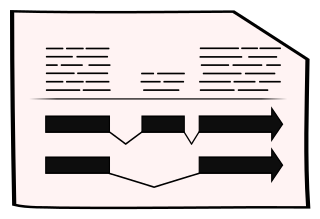Caenorhabditis remanei
BioProject PRJNA248909 | Data Source University of Oregon | Taxonomy ID 31234
About Caenorhabditis remanei
Caenorhabditis remanei is a small, free-living roundworm from the "Elegans" supergroup of the Caenorhabditis genus found in North America and Europe in soil, rotten fruits and vegetables and compost. C. remanei is a model for studying natural genetic variation and experimental evolution. They are feed on the bacteria and other micro-organisms associated with plant decay. The biology of C. remanei is similar to that of C. elegans, with a short generation time through four larval stages into an adult. Its closest species is C. latens. C.remanei has has a gonochoristic mating system (obligate outcrossing with male and female adults), unlike the hermaphroditic species such as C. elegans and C. briggsae. All three species are often found at the same site. C. remanei is frequently found associated with snails, slugs, millipedes, mites and pill bugs, which are presumed to transport worms, especially the dormant dauer stage, from one location to another, as with other Caenorhabditids. Genomes of 4 C. remanei strains have been sequenced, and more than 40 laboratory strains are currently available in Caenorhabditis Genetics Center (CGC).
There are 3 alternative genome projects for Caenorhabditis remanei available in WormBase ParaSite: PRJNA248911 PRJNA53967 PRJNA577507
Genome Assembly & Annotation
Assembly
The assembly of the strain PX356 was produced at University of Oregon, as described in Fierst et al. (2015) . \n \nThis assembly supersedes the assembly ASM164373v1 published in the WormBase release WS250.
Annotation
The genome was annotated at University of Oregon, as described in Fierst et al. (2015) .
Downloads
Tools
Key Publications
- Fierst JL, Willis JH, Thomas CG, Wang W, Reynolds RM, Ahearne TE, Cutter AD, Phillips PC. Reproductive Mode and the Evolution of Genome Size and Structure in Caenorhabditis Nematodes. PLoS Genet, 2015;11(6):e1005323
- Fierst JL, Willis JH, Thomas CG, Wang W, Reynolds RM, Ahearne TE, Cutter AD, Phillips PC. Correction: Reproductive Mode and the Evolution of Genome Size and Structure in Caenorhabditis Nematodes. PLoS Genet, 2015;11(9):e1005497
Navigation
Assembly Statistics
| Assembly | ASM164373v2, GCA_001643735.2 |
| Database Version | WBPS19 |
| Genome Size | 118,549,266 |
| Data Source | University of Oregon |
| Annotation Version | 2018-05-WormBase |
Gene counts
| Coding genes | 24,977 |
| Gene transcripts | 25,651 |
Learn more about this widget in our help section
This widget has been derived from the assembly-stats code developed by the Lepbase project at the University of Edinburgh











